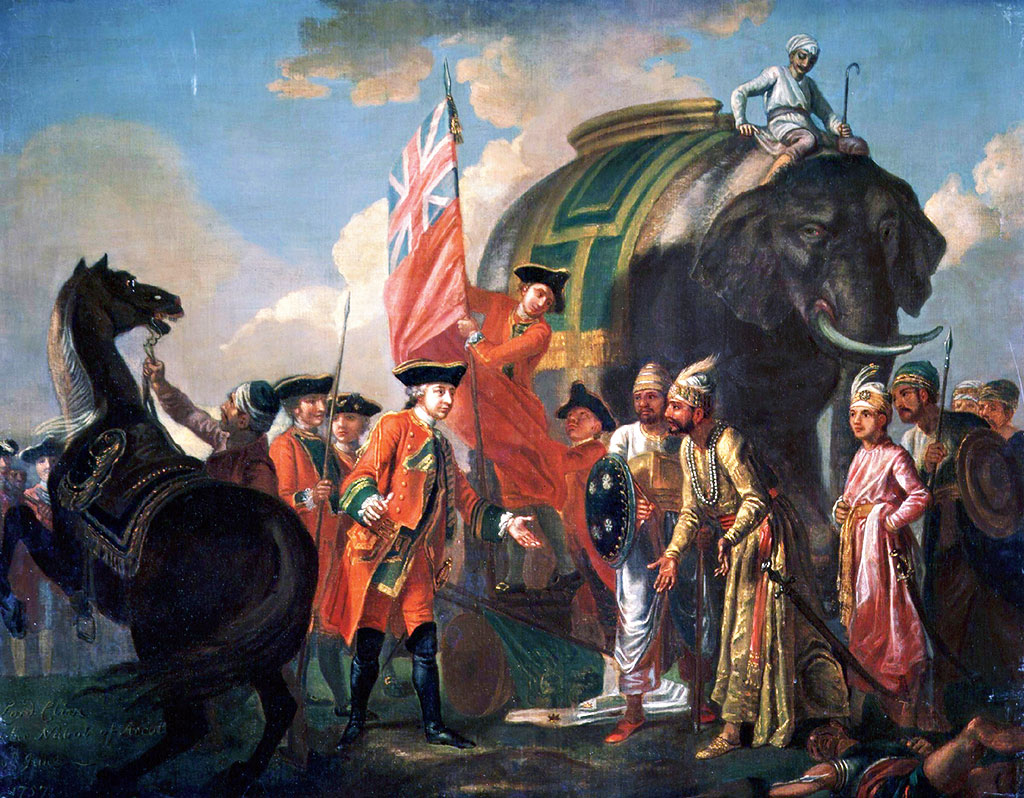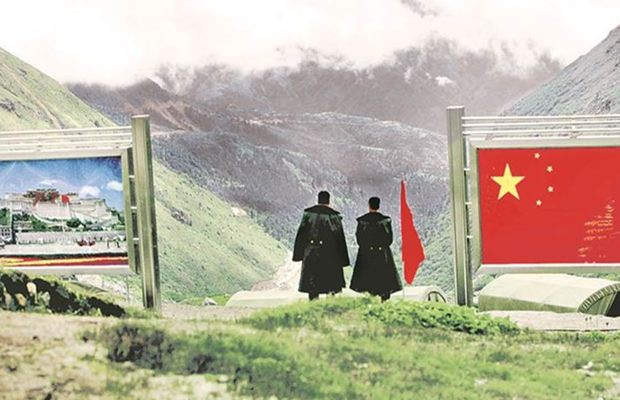The rendering of Clive, much in tune with the historical character, is plausibly capricious and vain, displaying sharp acumen as a shrewd military strategist. The Indian counterparts, too, have been effectively portrayed — the obstinate Siraj-ud-Daulah, the crafty Mir Jafar and the compliant Rai Durlabh and Lutuf Khan, all match the historical accounts. Ancillary characters, such as the sly Chanda Sahib, the astute Anwaruddin Khan, or even the acquiescent Mohammed Ali have all been depicted with conviction and authenticity. Representations of significant conflicts — the Carnatic Wars (1744-48 and 1749-54), the Tanjore campaign (1749), the British conflict with Siraj-ud-Daulah and his French allies (1756-57), the Battle of Plassey or even the Jacobite Rebellion (1745) — are also grounded in history.
But these military campaigns, although an integral part of the plot, are occasionally prolonged — often with excruciating combat details — and that seems rather tedious, and, at places, implausible. Nicholas’s single-handed thwarting of the thieves at London’s sordid Wapping Docks or his other personal encounters could perhaps thrill an adolescent reader with a penchant for violence. In a historical novel celebrating martial glory, the portrayal of female characters takes a beating. Readers are likely to be disappointed with the sheer abjection of the women characters, including historical presences like Margaret Maskelyne and Jeanne Dupleix. The fictional characters, Meena or Sohini, only encourage the exoticization of oriental female stereotypes, while the improbable Lucia Vendramin, who emerges from nowhere, seems a far-fetched creation forcibly introduced in the narrative.
Yet in spite of these shortcomings, Fortune’s Soldier does manage to capture and recreate for the general reader the political intrigue of an era that otherwise, by and large, remains confined to history textbooks.
The complex socio-political factors contributing to Robert Clive’s historic triumph in the Battle of Plassey (1757) and the dawn of the British empire in India have been recurrent subjects of research for historians. Alex Rutherford’s (the joint pseudonym for the authors Diana and Michael Preston) historical novel Fortune’s Soldier — succeeding the best-selling Empire of the Moghul Series — tries to reconstruct Clive’s journey to India and his subsequent heroic exploits. As the prefatory note claims, a fortunate unearthing of a large metal box at an auction house near the Howrah railway station in Calcutta containing miscellaneous papers, letters and diaries dating back to the 1700s about the Ballantyne family triggered Rutherford’s imagination into weaving a fascinating narrative of colonial tussle and supremacy.
The complex socio-political factors contributing to Robert Clive’s historic triumph in the Battle of Plassey (1757) and the dawn of the British empire in India have been recurrent subjects of research for historians. Alex Rutherford’s (the joint pseudonym for the authors Diana and Michael Preston) historical novel Fortune’s Soldier — succeeding the best-selling Empire of the Moghul Series — tries to reconstruct Clive’s journey to India and his subsequent heroic exploits. As the prefatory note claims, a fortunate unearthing of a large metal box at an auction house near the Howrah railway station in Calcutta containing miscellaneous papers, letters and diaries dating back to the 1700s about the Ballantyne family triggered Rutherford’s imagination into weaving a fascinating narrative of colonial tussle and supremacy.
Rutherford’s fast paced narrative, blending fact and fiction, is set in the early 18th-century political void resulting from the diminishing supremacy of the Mughal empire in India. Heavily laden with accounts of power struggles, court intrigues, deceit, treachery and combat strategies, Fortune’s Soldier makes occasional forays into the lives of historical characters. At the start of the novel, we find the 19-year-old Scotsman, Nicholas Ballantyne, at the behest of his uncle James, foregoing his plans of leading a life as a laird in his ancestral estate and undertaking a journey to Hindustan to join the East India Company as a ‘writer’ or a Company clerk. Nicholas’s association with 22-year-old Clive is initiated on board The Winchester and continues to develop right through the novel. It is, however, his alliance with Tuhin Singh (Ballantyne’s steward and closest friend) that celebrates the real martial camaraderie in Fortune’s Soldier. An embodiment of steadfast loyalty, Tuhin devotes himself to Nicholas’s service, prompted by gratitude that he was saved from a tiger attack. He executes miraculous escapes for both Nicholas and Clive in the midst of the most hostile and challenging circumstances. It is the string of adventures undertaken by Nicholas, in the company of Clive and Tuhin, that takes the reader on a historical journey through the two Carnatic wars, the Tanjore campaign, the capture and security of Arcot, culminating in the decisive Battle of Plassey. This route of violent action traverses Madras, Pondicherry, Cuddalore, Trichinopoly, Arcot, before terminating in Calcutta and Hooghly.

Robert Clive and Mir Jafar after the Battle of Plassey, 1757, painting by Francis Hayman Wikimedia Commons













